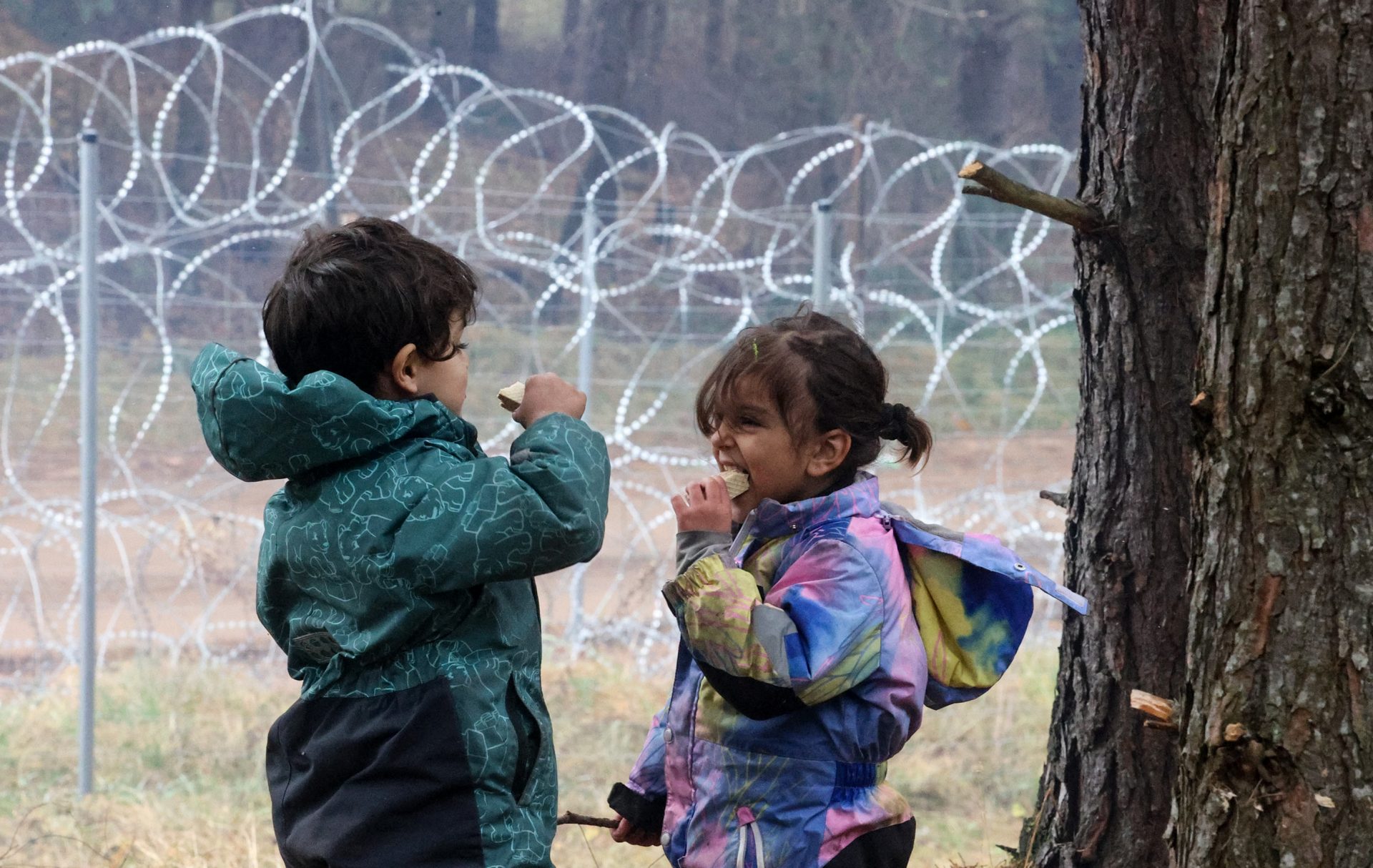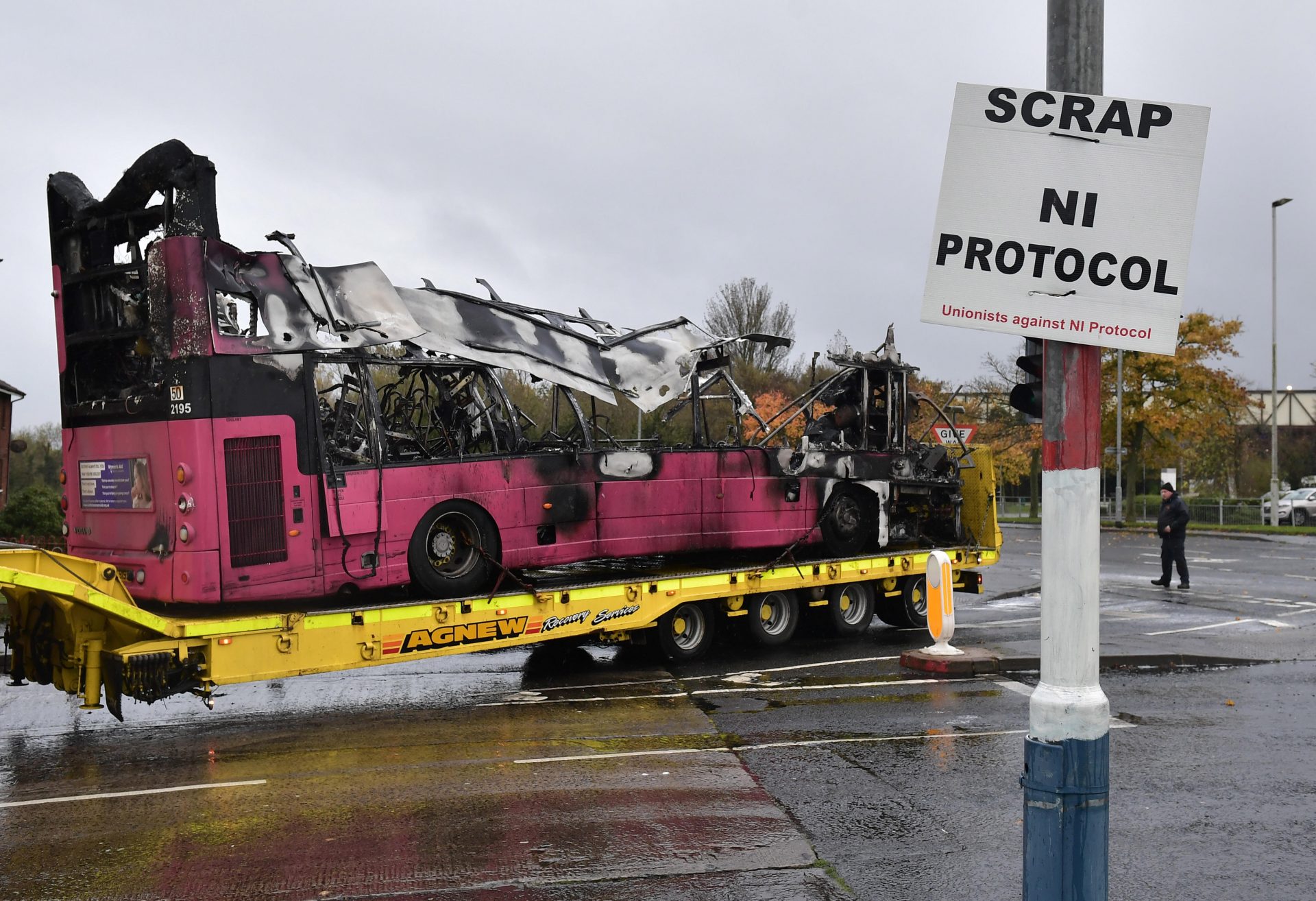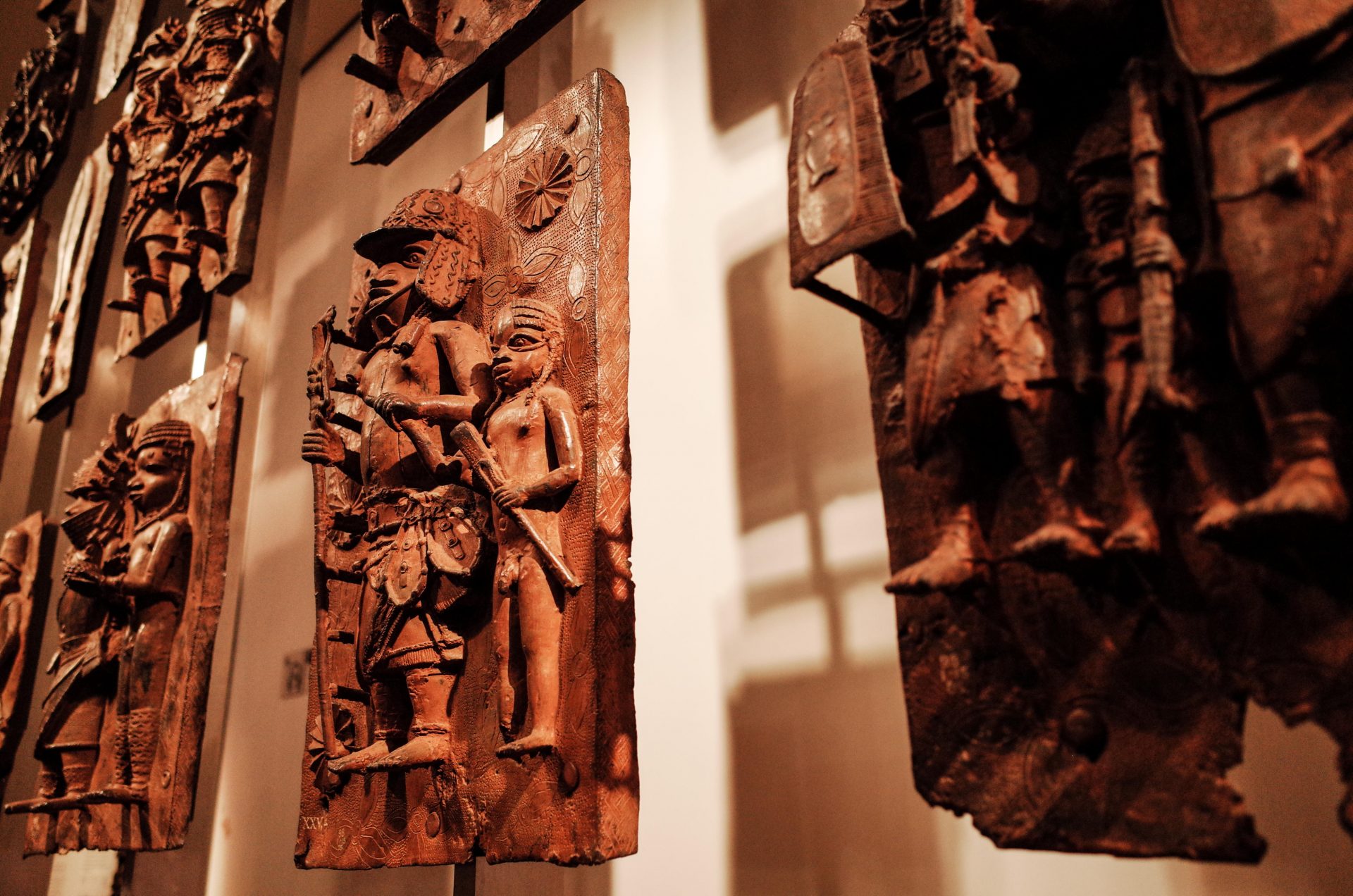Whichever way they look, Poles sees only trouble. To the East, “hordes of Muslim refugees” (their phraseology, not mine), are clamouring to be let in as soldiers struggle to hold them at bay. To the West stands a neighbour that is arrogant and cannot be trusted. Is it any wonder they feel embattled?
When I say Poles, I mean the half of them who back the governing Law and Justice party, the half that believes Europe is synonymous with Christianity and that all other points of view belong to an unpatriotic, cosmopolitan elite.
They see nothing but threats, from without and within, to the flag.
One problem, however, is very real: on the border with Belarus, where thousands of the world’s most destitute people have been trying to cross the EU’s external frontier. They are doing so with the co-operation of Alexander Lukashenko and the man who pulls his strings, Vladimir Putin. This attempt to undermine the cohesion of Europe is being done in broad daylight – with flights chartered from Turkey and the Middle East, offering potential asylum-seekers a false promise of a new life.
There are many aspects to this tragedy. Russia’s disruptive role is nothing new. Will the EU, which has descended into one of its regular bouts of self-doubt, step up? It did next to nothing to punish the Kremlin over Alexei Navalny. It did not much better when dealing with Lukashenko’s stealing of a general election, subsequent clampdown and hijacking of an airliner in order to kidnap a prominent blogger.
The soon-to-begin three-party coalition in Germany may take a tougher stance, given the past hawkish statements of the Greens, but the EU struggles to find common positions on dealing with dictators.
The most urgent task is helping the tide of refugees. External help is at hand, but the Polish government is refusing most of it. It has declared a state of emergency in the border region, seeing aid workers and journalists as an impediment rather than assistance. And is it not allowing in the EU’s fledgling border force, Frontex.
A wall is planned for next year, bringing back memories of a Europe past. All the while people are dying in squalid conditions and the freezing cold.
Poland’s prime minister Mateusz Morawiecki has accused Putin of orchestrating the crisis. “The security of our eastern border is being brutally violated. This is the first such situation in 30 years when we can say that the integrity of our borders is being tested,” he declared, as he sent in security reinforcements to shore up the barbed-wire fence.
At the same time, Morawiecki is dismissive of the EU. “Poland has been reluctant to Europeanise the border problem, to accept countless offers of EU help,” says Piotr Buras of the European Council on Foreign Relations, in Warsaw. “They could have Frontex at the border. Symbolically it would be important to show that this is a European problem, and not confined to one country. Instead Morawiecki insists that the border is the preserve of Poland and Poland alone. It is about demonstrating sovereignty and self-sufficiency.”
Charles Grant, of the Centre for European Reform, suggests it is worse than that. “There is another reason why they are they refusing to allow NGOs and journalists to visit, why they don’t want Frontex. They don’t want people monitoring their behaviour on the frontline.”
The government is using the border crisis for political advantage, Grant adds. Poland has refused to take in migrants under EU quota schemes devised after the great wave that arrived in Germany in 2015. It is the classic political wedge, to play up against a “soft” opposition. “Liberals are in a mess about it.”
The horrific border scenes form the backdrop for a wider ideological battle. Morawiecki wants the EU to get harsher on Russia and Belarus. Meanwhile, he is doing everything he can to alienate Brussels – and has been doing so for years.
The downward trajectory began with Poland’s so-called judicial reform programme, which involved setting up a “disciplinary chamber” of the Supreme Court to nobble judges and others of suspect liberal tendencies.
The government describes this as making the judicial elite more accountable to elected bodies – dispensing with the notion of separation of powers.
The European Commission naturally disagrees and, after seeing sanctions including the suspension of Poland’s European Council voting rights blocked by Hungary, the Czech Republic and others, responded by initiating infringement procedures in the Court of Justice, which, in July, called for the suspension of the chamber. Last month, it ordered Poland to pay daily one million euro fines for non-compliance with the July ruling. Poland matched that – and doubled it. The constitutional court ruled that the EU institutions had exceeded the legal competences transferred to it by a nation state. In other words, Polish law trumped European law, an incendiary ruling that goes to the heart of all governing treaties.
Brussels has one tool left in its armoury: to withhold money, both payments from the Covid recovery fund (a first tranche of 4.7 billion euros is due out a total of 37 billion euros) and from the EU’s regular 2021-27 budget, of which Poland is one of the biggest beneficiaries.
European politicians and officials, still smarting over Brexit, are fully aware of the dangers. They have also read the data. A recent opinion poll found 90% of Polish voters in favour of EU membership. A survey for the Rzeczpospolita newspaper found 68% of voters citing fiscal transfers as the main benefit of membership.
Polexit may be some way off, but that’s what they said about the UK’s departure until it was too late.
The CER’s Grant says that Germany holds the key and he is not optimistic, with Angela Merkel due to hand over to Olaf Scholz next month. “Poles are terrified of Merkel’s departure. Whatever the tensions of the past few years, they see her as better than everything to follow. She tried to stop the EU from punishing Poland, by kicking decisions into the long grass. That’s not going to happen any more.”
Add to that the various other “culture war” disputes, not least the Polish government’s refusal to embrace LGBT+ rights, something the new centre-left administration in Berlin will not look kindly on, and constant curbs on a free press.
How much worse can things get? With Hungary at its side, Poland could do much to slow down, if not paralyse, decision making in Brussels. As for the refugees, it could perform a U-turn and let them all in. The assumption is that pretty much all of them would transit the country on the way to safer, lucrative climes in Germany.
The German authorities have taken in more than 6,000 since the start of the year, a tiny proportion of those trying to make it, and who did make it in 2015 before Merkel paid the Turks to keep them there. Germany has stationed 800 extra police on the Polish border. The outgoing interior minister Horst Seehofer has warned that some form of border control may have to be introduced, although he has ruled out a full closure.
There has not been a moment in the past 30 years when relations have been so bad. There has not been a moment when Poland and Germany needed each other more.




